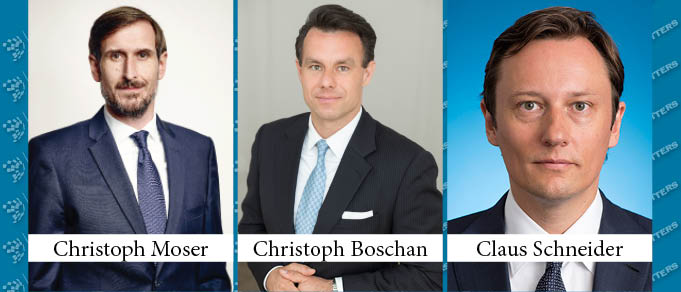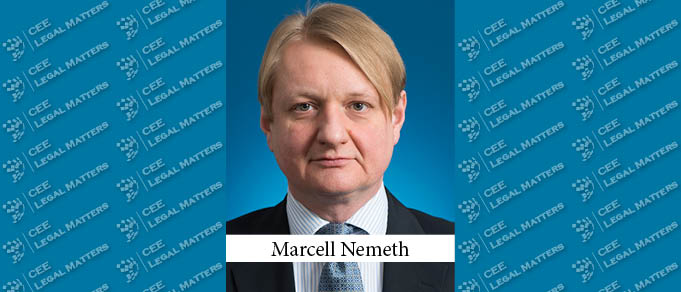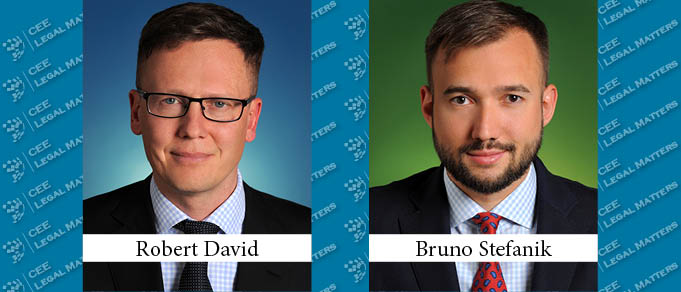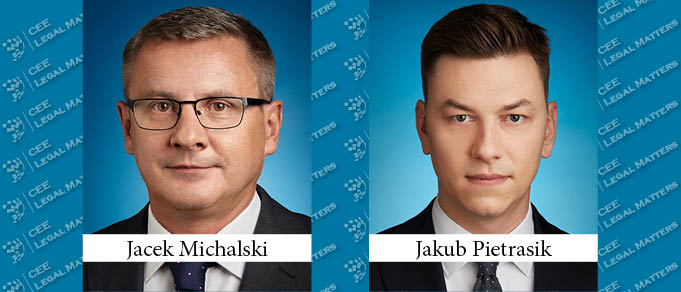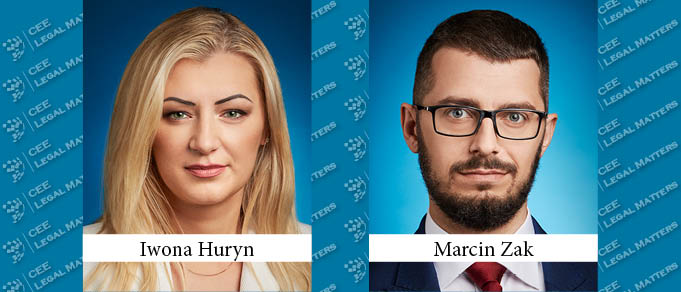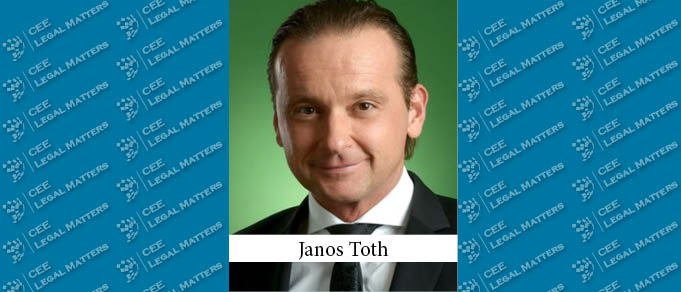With the interim government firmly in charge until the upcoming elections take place, Bulgaria is experiencing strong economic wind in its sails, according to Wolf Theiss Partner Richard Clegg.
Romania Rebounding: A CEELM Round Table
On April 8, 2021, CEE Legal Matters sat with senior partners from four of Romania’s leading law firms for a Round Table conversation.
A Firm Grasp of the Subject
Annual reports make up a fundamental part of many regional CEE law firms’ marketing strategies, providing those firms with an annual opportunity to demonstrate their knowledge and expertise in a particular area, their geographic footprints, and their ownership and facility with the research and technological tools and manpower necessary for the production of such comprehensive projects.
A Lasting Legacy: The Vienna Stock Exchange Celebrates its 250th Anniversary
The Vienna Stock Exchange was founded in 1771, during the reign of Empress Maria Theresa. Initially launched as a market for state-issued bonds – only bonds, bills of exchange, and foreign currencies could be traded – it expanded rapidly. In 1818, the Austrian central bank – which had itself been founded only two years earlier – became the first joint-stock company to be listed on the exchange (and one of the first shareholders was Ludwig van Beethoven, who bought eight shares in 1819). In 1863, the Suez Canal Company had become the first foreign company to be listed on the Vienna Stock Exchange, and in 1865, there was a further foreign listing with premium bonds issued to fund Turkish railway lines (“Turkenlose”). When the Frankfurter Bankverein applied for a listing of the Turkenlose bonds on the VSE, the Exchange Chamber decided to introduce rules for the admission of foreign securities, and thus, in 1873, the “Italian bond” became the first official foreign listing by means of a formal application. In December 1997, the Vienna Stock Exchange Chamber was merged with the Austrian Futures and Options Exchange to form a new exchange operating company, Wiener Borse AG, and in subsequent years the business spectrum of the Vienna Stock Exchange broadened to include market data dissemination and index calculation as well as IT services and central securities depository services.
Expat on the Market: Interview with Marcell Nemeth of Wolf Theiss
An interview with Marcell Nemeth of Wolf Theiss, about his path from Budapest to Vienna.
COVID-19 in Slovakia: New Moratorium Framework for Borrowers
On January 1, 2021, Act No. 421/2020 Coll. – the “2021 Moratorium Act” – took effect in Slovakia, introducing a protective framework for businesses affected by the ongoing COVID-19 pandemic and temporarily shielding them from a run on assets by creditors. The 2021 Moratorium Act replaced the temporary moratorium scheme introduced in May 2020, which had been in effect until that point.
Life of Loans During and After COVID-19
In response to the COVID-19 outbreak, the Hungarian government launched Government Decree 47/2020 (III. 18.), introducing a moratorium on the payment of principal, interest, and fees arising from facility, loan, and financial lease contracts until December 31, 2020. This moratorium, which we will call the “2020 Payment Moratorium,” was automatically available to both natural person and business entity borrowers, although they could opt out of if they wished.
Romania Opens up the Possibility for Negotiated Power Purchase Agreements
The Romanian Government has recently brought important amendments to the energy regulatory framework by way of the new Government Emergency Ordinance no. 74/2020, effective May 19, 2020. According to the new regulations, new energy producing facilities, both renewable and conventional, commissioned after June 1, 2020, would be allowed to sell their output outside the current centralized energy market, at negotiated prices, with the observance of competitive rules. The amendment is intended as an exception to the general principle set out by Energy Law no. 123/2012 that transactions with electricity are carried out on the competitive market, in a transparent, public, centralized, and non-discriminatory manner.
Romania: A positive look over M&A in 2020
M&A practitioners, fund managers and CEOs are living a 2020 that is rich in experiences. Of course, we all hoped this to be the best year since the 2008 crisis.
Poland: Switching to the “New Normal”
There is a question circulating on the Internet right now: Who led the digital transformation of your company? Possible answers are: a) CEO; b) CTO; c) COVID-19. Which answer is correct?
The Activity of the Arbitrator Under Hungary’s New Arbitration Act
The extent to which a judge may be active in obtaining the facts necessary to adjudicate a dispute or in finding the legal norms on which a decision is based is a fundamental question of any legal proceeding. Can judges invite the parties to present facts which they consider essential? Or can a judge tell the parties that in his or her view the dispute can be settled on the basis of legal provisions which they have not invoked? These fundamental questions apply to arbitrators as well. In this respect, does arbitration give arbitrators a smaller or greater role than that which judges have? Perhaps surprisingly, arbitrators may in fact have stronger powers in this respect than state-authorized judges.
The Viennese Waltz
Attendees to the 2019 CEELM Winter Party were cornered, over the course of the evening, and asked, without warning or an opportunity to prepare, what achievement over the past 12 months they were proudest of.
Perpetual Usufruct Right Becomes More and More Similar to Freehold
With GDP growth for 2019 projected to be approximately 4%, the Polish economy remains strong, and the country’s real estate sector continues to set new records. The low availability of housing, strong domestic consumption, and stable industry production have boosted the profitability of real estate investments. Demand for land is high and developers compete fiercely for the shrinking number of attractive spots. In August 2019, a new law came into force which may make real properties held in a right of perpetual usufruct (RPU) more attractive than they used to be.
How Long Does BIM Have to Wait in Hungary?
Contrary to all expectations, Hungary still does not require the use of building information electronic modelling (BIM) tools in tenders for public works contracts, despite the excitement in the construction industry about the possibility that the tools would be made mandatory as early as 2014.
The Corner Office: Legal Tech
In The Corner Office we ask Managing Partners across Central and Eastern Europe about their unique roles and responsibilities. The question this time around: What was the most useful or valuable piece of software or new technology your firm has acquired in the past five years?
All Together Now: EU's New Foreign Investment Screening Regulation
This April, the new EU foreign investment screening regulation entered into force, with terms scheduled to become applicable on October 11, 2020. The regulation was conceived and designed to provide member states with a valuable tool to employ in defending their strategic interests. We spoke to several experts in the region to learn more.
The Belated Boom: Albania’s Troubled Road Towards EU Accession
After almost a century of reclusion, Albania has achieved formal candidate status to join the 28 member states in the European Union. Is the time finally right?
Challenges to Agricultural Policy Objectives of the EU
The agricultural sector in the European Union is facing an increasing number of legal and regulatory challenges, in contexts which are genuinely multidisciplinary.




